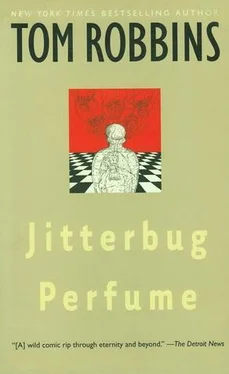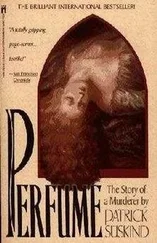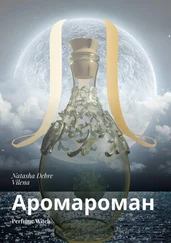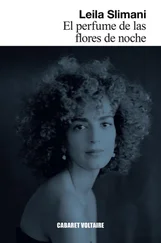Obviously a terminal, the wharf is teeming with travelers of every race, nationality, and era of time, arriving, departing, waiting.
The travelers murmur, occasionally they moan, but they do not converse among themselves. They hustle in. They bustle about. They stand in long lines. They go.
Although Kudra's body feels normal and intact, there is something insubstantial, almost vaporous, about most of the others. She is soon to learn that that is because they are dead. They have left their bodies behind and are walking about in mental projections, in their ideas of their earthly bodies. They have fleshed themselves in their imaginations of themselves, which explains why the majority of them are rather handsome.
Only the dematerialized are housed in actual bodies, and in all the throng, there are but two or three of these. The dematerialized, moreover, are exempt from the rules and regulations governing the dead. Conductors in white uniforms herd the dead arrivals into groups, from the groups into lines, single-file, but Kudra is allowed to roam at will.
The conductors seldom speak, but they act with irresistible authority. Their faces are radiant, their movements fluid and fluttery. Kudra is reminded of snowflakes, of the fluttering pages of books upon which poems in white ink have been written.
Acutely aware of her own smell, for there is no trace of odor among the dead masses, Kudra wanders throughout the great wharf, which, though miserably crowded, is steeped in a solitude more complete than any she has ever known.
No newspapers are for sale in the station, no sweets or tobacco. Travelers arrive. They go. They arrive in streams, through wide marble portals, carrying neither luggage nor souvenirs. But where is it they go from here? To find out, Kudra pushes to the head of a line. All lines, it turns out, lead to the same place: the Weighing Room.
Timidly, Kudra slips into the room, where she is surprised to find a tall, androgynous figure, half priest and half harlequin, wielding a gleaming knife.
One by one, the dead approach the harlequin priest. With a swift, practiced stroke, he (or she) cuts out their hearts.
Upon a stone altar, there is a set of scales. The scales are ordinary, made of brass, not gold. On the left balance, there is a single hawk-brown feather.
The harlequin priest passes each freshly rooted heart to his/her assistant, a young woman in a white tunic. The assistant lays the heart upon the right balance. If the heart is heavier than the feather — and time after time it is — the person is motioned to the rear of the room, where he or she joins another line, this one filing down steps that lead to the docks.
At regular intervals, ships moor at dockside. The ships are sleek and luminous. In fact, they seem fashioned entirely of light, a cold light, as staid and ordered as a Victorian drawing room. The heartless dead board the ships, which, once loaded, sail away at tremendous speeds. In a matter of seconds, they are no more than distant stars in the obsidian night of ocean.
The woman in the snowy tunic notices Kudra. She smiles. “Do you understand what is happening here?” she inquires. “We weigh their hearts. Should a person possess a heart that is as light as a feather, then that person is granted immortality."
"Indeed? Are there many?"
"Few. Precious few, I am sorry to say. One would think that people would catch on. Those who pass the test are usually rather odd. The last was a tall black fellow with bee dung caked in his hair. The ordinary rarely beat the scales."
"Where do they go, then, all those who fail?” Kudra pointed toward the water, where another ship of light was just whooshing away, leaving a milky wake.
"To the energy realms."
"Never to return?"
The woman shrugs. “As energy, perhaps. As light."
"But the ones who pass the test. .?"
"The immortals? They are free to take any direction they like. Free to embark on a sea voyage, to return to your world, or to some different world.” She places yet another heart upon the balance, squealing with delight when it does not send the balance dish plummeting to the altar top. “Look,” she says to Kudra. “Look at this one. Now here is one that comes fairly close."
This organ was ripped from the corpulent breast of a jolly-faced troubadour. He doesn't comprehend the commotion, but he is winking at Kudra, rubbing his belly, and looking as if he'd gladly trade his butchered heart for a pint of ale.
"Had he combined his hedonism with a pinch more wisdom, had he poured slightly less into his gullet and slightly more into his soul, he might have made it,” says the weigher of hearts. “Still, he earns a pink ticket."
She hands the troubadour something strongly resembling a carnation petal and motions him to a side door. Kudra follows him and learns that this door, too, leads down to the water, but to an empty dock. From above, the woman signals him to wait.
For quite a long time, the troubadour stands there. To relieve his tedium, he whistles a tune, a medieval ballad of courtly love. Suddenly, he is silenced in mid-whistle, his lips periwinkled in a frozen pucker. A ship is pulling into view.
As it nears dockside, Kudra sees that it is a barge, of considerable length, and canopied with pink linen, from whose edges fringe and tassels dangle. The barge is hung with paper lanterns, in which candles blaze gaily. Scattered about the deck are tables and chairs, resembling those of an inn, and here sit people eating spicy southern foods and sipping beer and pineapple coolers. Minstrels with droopy black mustaches wander the deck, strumming guitars. Women in shoes with heels like daggers dance, rattling tambourines all the while and cooing lubricious phrases to the many parrots that occupy crude wooden cages. From below deck, a katzenjammer of libidinous voices is heard. On the side of the barge, the name Hell has been painted.
Despite the fact that there's no odor to give magnitude to the foods on deck or to the sex below, the passengers seem merry. Kudra believes that she recognizes one of them. Unless she is mistaken, it is Fosco, the calligrapher from the Samye lamasery. He is at table, in repartee with a pair of elderly Chinamen, whom he addresses as Han Shan and Li Po. They hurl lines of spontaneous poetry at one another, each trying to top the last, often slapping the tabletop and laughing wildly. Kudra waves and waves, but it is impossible to get Fosco's attention. The dead have little interest in the living, she surmises.
The barge scrapes against the dock with a careless rasp. The captain, a seedy Spaniard in a comic-opera version of a military uniform, leans over the rail and takes the troubadour's pink ticket. Once the fellow is aboard, the vessel floats lazily away, bound for unknown sprays.
As the barge departs, it turns, affording a view of its starboard side. On this side, the vessel wears a different name entirely. Heaven is what it says.
Kudra returns to the scales. The young woman is hard at work, testing hearts, assaying the precious metals of the life well-lived. “How did you land this job?” asks Kudra.
"I was not feather-light, but I was feather-bright,” she answers.
"I am not sure I understand. Yet I cannot help but notice that we strongly resemble one another, you and I."
"Indeed we do."
"Are we related? Am I an incarnation of you? Or something?"
"What makes you suppose that you would be an incarnation of me, rather than me of you?” She giggles and shakes her skunk-black curls. “It is so amusing the way that mortals misunderstand the shape, or shapes, of time."
Читать дальше












